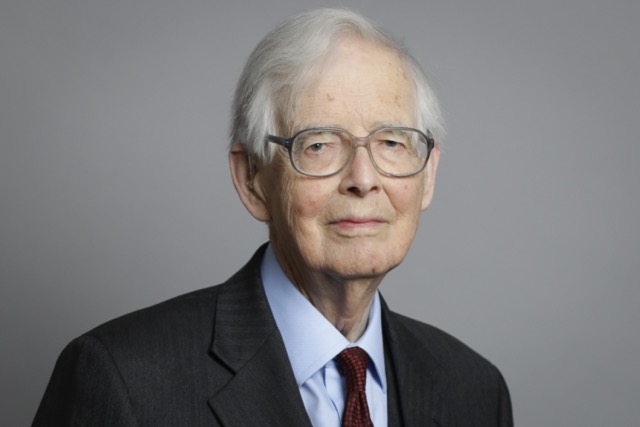One of the key figures in the early days of financial intermediary regulation, Lord Elton, has died at the age of 93.
He died on 19 August after a long career as a House of Lords peer and politician, retiring only in 2020.
He was chairman of former regulatory body Fimbra (the Financial Intermediaries, Managers and Brokers Regulatory Association) from 1987 to 1990, helping to get the new body off the ground.
Fimbra was the first regulatory body set up by the government to regulate financial advisers and was established soon after the pivotal Financial Services Act 1986.
Fimbra later became part of the ‘super regulator’ the Personal Investment Authority and its role has subsequently been absorbed by the Financial Conduct Authority.
The Financial Services Act of 1986 heralded the so-called ‘Big Bang’ in the City which swept away archaic restrictions on the roles of brokers and market makers, liberalising rules. It also introduced the legally-enshrined notion of independent financial advice and pave the way for new regulators such as Fimbra.
Lord Elton steered Fimbra during its hectic early days which many saw as the ‘Wild West’ beginnings of financial regulation. It was the main regulator of financial advisers in the late eighties after the launch of the financial self regulatory bodies. There were several self-regulatory bodies set up at the same time including Fimbra for advisers and Imro for fund managers.
Lord Elton was born Rodney Elton and became the 2nd Baron Elton. He attended Eton and Oxford and was a former farmer and teacher at Loughborough Grammar School. He gave up teaching to pursue a career in government and politics and became a junior minister under Mrs Thatcher’s government. He unsuccessfully stood for Parliament twice.
He was a Minister of State at the Home Office and Parliamentary Under Secretary of State at the Department of Health and Social Security among several government roles.
He was was a member of the House of Lords as a Conservative peer for nearly 50 years and served on many committees including the Procedure and Privileges Committee, the Ecclesiastical Committee and the Constitution Committee.
He was a devout Christian and also worked to help ex-offenders. He was passionate about English grammar and punctuation among many interests.

